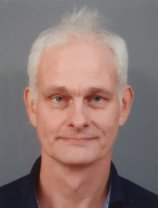Résumé
Compartmentalization is generally regarded as one of the key prerequisites for life. To better understand its role, there is a clear need for model systems in which life-like properties can be installed. In this lecture I will discuss a synthetic cell platform composed of a complex polymer coacervate formed from oppositely charged amylose derivatives and stabilized by a semi-permeable polymer membrane. The coacervate structure resembles better the crowded environment observed in the cytoplasm than vesicular structures normally do. Cargo, such as enzymes, can be highly effectively loaded in the coacervates, based on complementary charge and affinity. This allows protocell communication with this robust synthetic platform. Using natural scaffolding proteins we can controllably take up and release proteins from the artificial environment, which mimics natural secretion. We have reconstructed the cellular architecture of a eukaryotic cell by incorporating multiple artificial organelles, both with membrane-bound and membrane-less architectures. Furthermore we have equipped the cells with an artificial cytoskeleton that allows us to modulate membrane dynamics and mechanical properties. Finally, we are able to incorporate life-like features such as motility in these structures, making this class of artificial cells a very versatile platform to study and mimic biological processes.
Jan van Hest

Jan van Hest obtained his PhD from Eindhoven University of Technology in 1996 with prof E.W. Meijer. After a postdoctoral stay with prof D.A. Tirrell, he joined the chemical company DSM. In 2000, he was appointed full professor in Bio-organic chemistry at Radboud University Nijmegen. As of September 2016 he holds the chair of Bio-organic Chemistry at Eindhoven University of Technology. Since May 2017 he is the scientific director of the Institute for Complex Molecular Systems. He is one of the main applicants of two gravitation programs on Functional Molecular Systems and Interactive Polymer Materials, and was awarded two ERC Advanced grants (2015 and 2024). He has been elected member of the Royal Netherlands Academy of Arts and Sciences in 2019, the Academia Europaea in 2023 and was awarded the Spinoza premium in 2020. 65 PhD students have obtained their doctorate degree under his supervision, and he has published around 400 papers. He is also cofounder of four start-up companies. The group’s focus is to develop well-defined compartments for nanomedicine and artificial cell research. Using a combination of techniques from polymer science to protein engineering, well-defined carriers and scaffolds are developed for application in cancer treatment and immunology.
